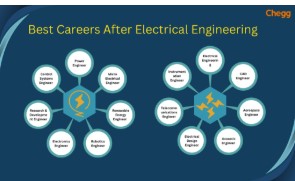Decoding Engineering Careers: Pathways, Disciplines, and Emerging Frontiers in 2025
Since the dawn of civilization, engineering has sculpted the world around us—etching human ambition into stone, steel, and silicon. From ancient aqueducts to autonomous vehicles and interstellar probes, engineering has always been humanity’s blueprint for progress. In today’s world, this discipline is more vital than ever—fueling innovation, countering global crises, and constructing the framework for a sustainable tomorrow.
But what lies behind the title of “engineer”? What roles are reshaping the future? How does one step onto this expansive and intellectually rich path? This guide delves deep into the world of modern engineering—its branches, career landscapes, and how to thrive within them.
What Is Engineering, Really?
At its essence, engineering is the strategic marriage of science and mathematics to devise, construct, refine, and sustain everything from microscopic chips to mega-structures. Yet it is far more than equations—it is equal parts logic and invention, calculation and creativity.
Engineers are society’s problem-solvers—designers of machines, architects of infrastructure, coders of intelligence, and guardians of ecological balance.
Why Engineering? Why Now?
Evergreen Demand – Engineers remain indispensable across industries, from renewable energy to robotics.
Expansive Specializations – Mechanical, aerospace, AI, biotech—the possibilities are vast.
Financial Merit – High entry-level wages, exponential growth potential, and comprehensive benefits are common.
Tangible Impact – Every bridge built, every algorithm optimized, every innovation realized—engineers directly shape society.
Global Portability – Engineering skills transcend borders and adapt to nearly every economy on the planet.
Dominant Engineering Careers in 2025
- Mechanical Engineer
Masters of motion, these engineers breathe life into engines, robotics, HVAC systems, and mechanical apparatus.
Domains: Automotive, robotics, industrial systems
Core Tools: CAD software, materials science, thermofluid dynamics
2. Civil Engineer
The stewards of civilization’s skeleton—planners and overseers of highways, waterworks, and high-rises.
Sectors: Urban infrastructure, public works, geotechnical engineering
Key Skills: Structural design, project oversight, geo-surveying
3. Electrical Engineer
Innovators of electronic landscapes—from nanocircuits to national grids, their work powers the modern world.
Industries: Telecommunications, energy, automation
Expertise Needed: Signal modulation, circuitry, power systems
4. Computer Engineer
Architects of digital intelligence, fusing hardware circuitry with computational logic.
Applications: AI, IoT, cyber-physical systems
Required Skills: Firmware development, embedded systems, data protocols
5. Software Engineer
While not always formally labeled as engineers, software developers code the architecture of our digital lives.
Fields: Finance, healthcare, tech platforms
Tech Stack: Python, C++, cloud APIs, version control
6. Chemical Engineer
Alchemists of modern chemistry—transforming raw compounds into medicines, fuels, and materials.
Areas: Pharmaceuticals, petrochemicals, environmental solutions
Skills: Reaction engineering, process modeling, safety compliance
7. Environmental Engineer
Eco-engineers who intertwine innovation with preservation—mitigating pollution and advancing sustainability.
Fields: Renewable energy, climate science, municipal planning
Specialties: Environmental legislation, GIS mapping, eco-design
8. Aerospace Engineer
From fighter jets to Mars missions, these professionals push the boundaries of gravity.
Employers: Space agencies, defense contractors, aeronautics firms
Focus Areas: Propulsion, orbital mechanics, aerodynamics
Foundational Skills for the Engineer of Tomorrow
Critical Dissection – Break complex systems into solvable layers
Inventive Thought – Imagine what doesn’t yet exist
Precision Communication – Translate tech-speak into teamwork
Collaborative Spirit – Harmonize with diverse minds across disciplines
Deadline Dexterity – Manage time, scope, and outcomes under pressure
Digital Mastery – Know your way around simulations, modeling, data tools, and coding frameworks
Charting Your Course into Engineering
- Select Your Discipline
Does aerospace thrill you? Start with curiosity—it’s your best compass. - Secure a Formal Education
A bachelor’s degree in an accredited engineering program is the launchpad. For most, it’s the gateway to certification and specialization. - Dive into Internships
Real-world exposure isn’t optional—it’s transformative. Learn by doing, network by working. - Acquire Licensure (When Required)
Civil and structural roles often demand credentials like the PE (Professional Engineer) designation. - Elevate with Further Study
Whether it’s a master’s degree or domain-specific certification, advanced learning deepens expertise and opens leadership doors.
Emerging Currents in the Engineering World
1. Eco-Innovation
Sustainability isn’t a buzzword—it’s now a baseline. Engineers versed in green tech are vital to our planet’s resilience.
2. Robotics & AI Integration
Engineering is swiftly merging with machine intelligence, creating adaptive systems in everything from surgery to self-driving cars.
3. Additive Manufacturing (3D Printing)
Engineers now print structures, prototypes, and even organic tissue—redefining what’s possible in design.
4. Intelligent Infrastructure
As cities become “smart,” engineers must embed sensors, connectivity, and automation into every roadway and skyscraper.
5. The New Space Age
Private and public space exploration is booming—spurring demand for visionaries in propulsion, navigation, and interstellar systems.
6. Realities and Roadblocks
Engineering isn’t without its complexities:
Endurance Projects – Some blueprints take years to manifest
Innovation Pressures – Clients expect futuristic thinking
High-Stakes Math – Precision errors can be catastrophic
Lifelong Learning Curve – Stay relevant, or risk obsolescence
Yet each challenge is a crucible—refining the resilient, creative, and ambitious into leaders of tomorrow.
Notable Employers of Engineering Talent
Google – Algorithms, AI, and scalable software
Tesla – EV innovation, energy solutions
Siemens – Industrial automation, smart tech
Boeing – Aeronautics and defense
Shell – Energy engineering, refining innovation
Arup – Structural design and urban planning
NASA – Interplanetary exploration and systems engineering
GE – Power systems, machinery innovation
Intel – Semiconductor technology, chip design
SpaceX – Aerospace disruption and satellite deployment
Is This Your Calling?
Ask yourself:
Do I get energized solving intricate problems?
Do machines, systems, or algorithms fascinate me?
Can I navigate the rigor of math and scientific inquiry?
Do I want to craft tangible innovations that matter?
If your pulse quickened with a “yes,” the engineering world may just be waiting for your blueprint.
